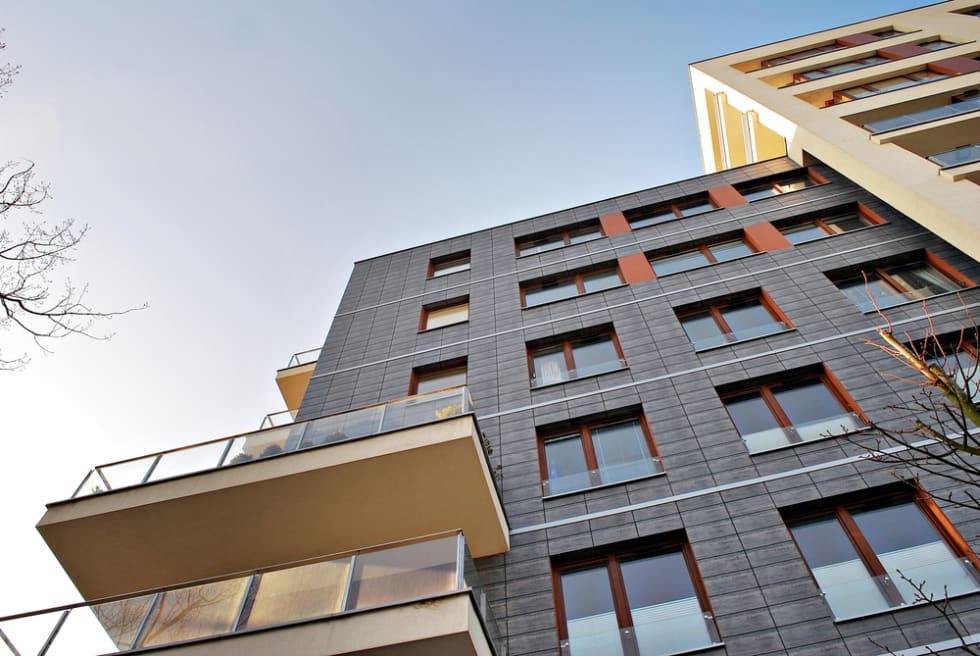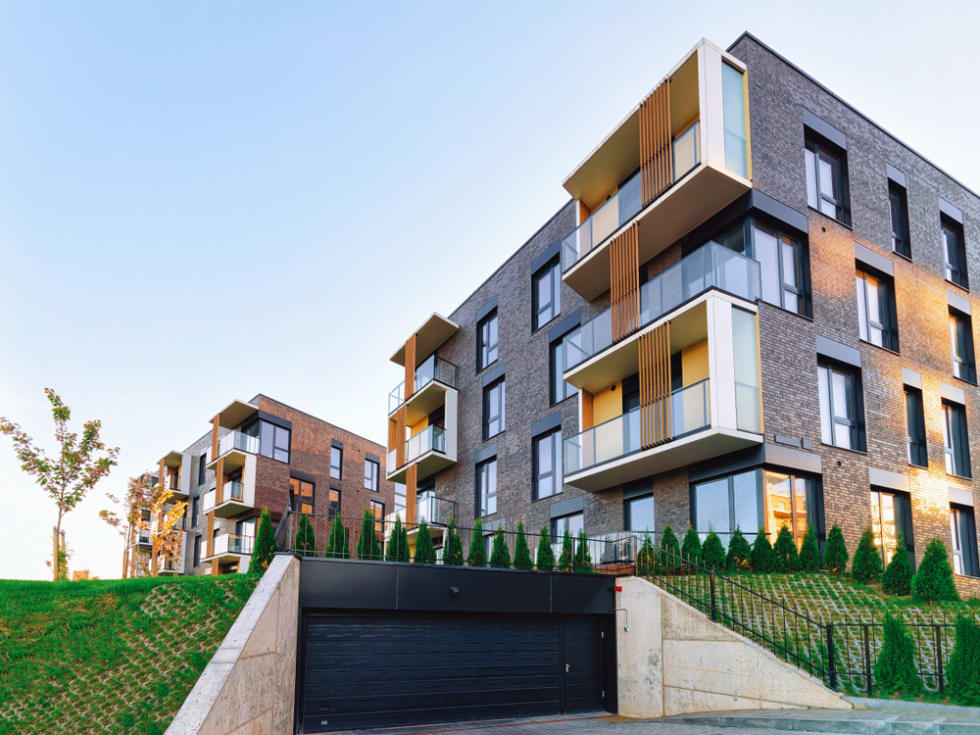What Are Average Property Management Fees? [2024]

Just about every property manager or management company imposes fees on landlords to oversee various aspects of their property. However, the type and price of each of these fees can fluctuate based on numerous factors, including the type of property and the services provided.
In this guide, we’ll explore how property management fees work, the average cost of property managers, and other factors that might impact the fees you incur.
Different Types of Property Management Fees
Understanding the different types of fees involved is crucial for optimal financial planning, but property management comprises a complex system. Let’s take a look at the various types of property management fees that exist and what you can expect from them.
Setup Fee
A setup fee is one of the first fees you'll encounter with a property management company. Setup fees are common, one-time fees that most companies will ask you to pay upfront.
On average, you can anticipate paying your property management company around $300 for a setup fee, which often includes:
- Initial property inspection.
- Assistance with applying for the necessary business or tax licenses.
- Opening a bank account in your name.
- Creating your account with the property management company.
If you purchase a turnkey rental property, this setup fee will also include coordinating your transition to a new property management company.
Monthly Management Fee
Beyond your initial contract setup fee, property management companies charge fees for the day-to-day management of your rental property. Duties covered in management fees include:
- Collecting and processing rent.
- Responding to emergency maintenance calls.
- Coordinating repairs.
- Conducting property inspections.
- Communicating with tenants.

Types of Fees
So, how much does a property manager cost?
Property management companies will charge management fees based on two primary structures: percentages or flat rates.
Percentage of Rent
Most commonly, property managers charge management fees based on a percentage of the monthly rent they collect. On average, property management companies charge anywhere from 8% to 12%.
Based on the 10% U.S. national average, this means that if the monthly rent is $1,611 (which is the average cost of a one-bedroom apartment in Los Angeles), the property management fee will be $160 per month.
Flat Rate
The alternative property management fee structure is based on a flat rate rather than a percentage of your monthly rent. Several factors determine this fee, including:
- Services provided.
- Square footage.
- Type of property.
The national average flat-rate fee a management company charges to run a single-family home is approximately $100 per month. Bear in mind, however, that these rates can vary dramatically depending on your market.
Maintenance Fee
Working with property management companies can benefit rental property owners, as many of them have extensive networks of trusted vendors or full-time maintenance crews on staff. As such, you can anticipate lower costs for general repairs and maintenance on your property than if you were to source the work independently.
While researching local property management companies, always ask how they handle repairs and maintenance requests.
In some instances, such as significant property updates, your management company may charge a repair and maintenance fee of around 10% of the value of the project. This fee will cover the management company's time and effort to ensure the work is handled correctly and promptly.

Leasing Fee
Another fee to be mindful of when researching property management companies is the leasing fee or “new tenant placement fee.” This fee refers to the sum collected by the property management company for leasing the property once it is vacant again.
Usually, leasing fees equal one month's rent or a predetermined percentage, anywhere from 50% and up. Alternatively, you might find some property management companies that charge a flat fee.
The purpose of this fee is to cover property management costs associated with listing your property again, including:
- Showing your property to prospective tenants.
- Advertising your property.
- Screening applicants.
- Preparing the lease agreement.
- Performing the move-in inspection.
Be sure to find out the details of each property management company's leasing fee. Some provide full or prorated rent when a tenant breaks the lease before the agreed-upon term. These clauses benefit property owners, who can rest assured that the management company prioritizes finding quality tenants for the properties.
Eviction Fee
Evictions are nightmares for both landlords and property management companies. Whether your tenant needs to be evicted due to lack of payment or property damage, it can be a sticky situation. Many property management companies handle evictions, and while larger companies may even have their own legal team, others will outsource the work to local legal professionals who specifically handle evictions.
On average, eviction fees are fixed and run about $500 on average plus applicable legal fees. However, if you are awarded funds by the court, collection agencies and attorneys will likely charge you an additional 50% of the money you receive.
Additional Property Management Fees
Property management often involves more than your standard fees. These additional fees below can significantly impact the overall monthly cost.
Vacancy Fees
If your rental property is vacant, most property management companies will still charge you a monthly fee — either a fixed fee or one equivalent to the anticipated monthly rent.
While paying a property management company while you are not currently collecting rent might seem unnecessary, understand that vacant properties often require more work. Management companies will often visit the premises weekly to ensure no squatters or break-ins have occurred.
Late Payment Service Charges
Most landlords enforce late fees when rent is not paid on time. Even if you have a late fee setup in your lease agreement, it does not necessarily mean you will collect it in its entirety if you work with a property management company.
Some companies charge a percentage of your late fees, ranging from 25% to 50% on average. After all, the management company is responsible for tracking down your tenant to collect the rent and the late fee.
Bill Payment Fee
Another less common property management fee is the bill payment fee. Not all property management companies have these services since they are optional and depend on your housing type.
Bill payment fees cover handling the payments for things associated with:
- Homeowners association (HOA) dues.
- Insurance.
- Gardening.
- Landscaping.
Returned Check Fee
It is legal and often encouraged for landlords to charge extra fees if rent checks bounce, as it ensures tenants have the necessary funds to pay their monthly rent on time.
Like late payment service charges, property management companies often take a percentage of this fee. Of course, just like late payments, property management companies are responsible for tracking down your tenants to collect the proper rent charge and the returned check fee.
Factors That Affect Property Management Fees
Property management fees depend on a number of unique factors, which vary from property to property. Understanding the different characteristics that impact cost can help you choose the best property management program for you.
Property Type
One of the biggest factors that will impact your property management cost is the property type. Multiunit apartment buildings have more complex leasing systems, property upkeep, and tenant requirements, which can increase the applicable fees.
The more your monthly rental income, the more a property manager can charge. For example, due to market positioning and management demands, a luxury property will likely require higher fees.
So, what is the average property management fee for rental properties? Take a look at the table below.
| Property Type | Average Percentage of Monthly Rent for Property Management Fees |
|---|---|
| Single-Family Home | 8%-12% |
| Multi-Family Home (2-4 units) | 10%-15% |
| Apartment Complexes (5+ units) | 5%-10% |
| Condominium | 8%-12% |
| Commercial Property | 4%-8% |
| Vacation Rental | 15%-25% |
| Industrial Property | 4%-8% |
Note that average standard property management costs can vary heavily based on location, services provided, and the specific agreement between the landlord/property owner and the management company.
Property Location
As you might expect, real estate market conditions in different regions also have a significant impact on the overall property manager cost. An urban market, where properties are more in demand and have higher rental rates, will often equate to greater-than-average property management fees. Note that local regulations can impact fees as well, so be sure to read up on property management requirements in your area.
Property Condition
The condition that the property is in will have a direct influence on typical property management fees, too.
A property that’s in poor condition will likely require more maintenance, leading to higher management fees to cover the additional workload. Similarly, poorly maintained properties often have higher tenant turnover, which can impact fees associated with finding and preparing for new tenants.
It’s worth looking into upgrades or renovations to reduce potential costs before hiring a management company, as it could save you money in the long run.
Services Provided
The job of a property management company can include several unique tasks, depending on the needs of the property owner. Some of the most common services include property upkeep, tenant screening, and rent collection.
The frequency at which you use these services can impact the cost. Comprehensive property management, which includes all tenant relations and property care, will cost much more than restricted services for general property management.
FAQs
How Do I Find a Good Property Manager?
Selecting the right property management company is crucial, as it will be wholly responsible for the oversight of your properties. To find one that’s ideal, research property management companies and private property managers online, and read reviews to get a better grasp of their current clients’ experiences.
Once you’ve created a small list of property management candidates, contact them to schedule consultations and discuss their experience, fees, and services.
What Should I Look for in a Property Management Contract?
Reviewing the scope of services in your property management contract is key. These services should include details on tenant relations, maintenance responsibilities, and rent collection.
Ensure the contract clearly outlines the expected fees and is transparent about any additional charges.
How Much Do Property Managers Charge?
Property managers will often charge a percentage of the overall monthly rent for rental property management fees, which ranges from around 8% to 12% for single-family residential properties. However, the percentage can vary based on numerous factors, including property type, location, and requested services.
Final Thoughts
There are several considerations to keep in mind when hiring a property management company. It is your responsibility to do your research and find out your options to make an informed decision.
However, if you're looking to get started on your own, make sure you choose a platform you can trust to get the job done, like Apartment List. We deliver prospective tenants who match with your properties and are eager to rent, giving you a higher chance of securing a lease.
Share this Article




